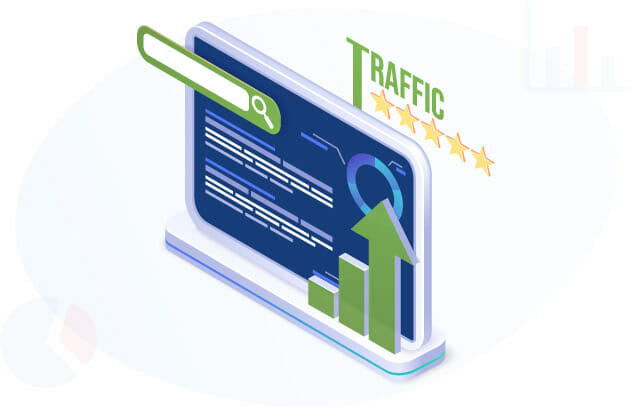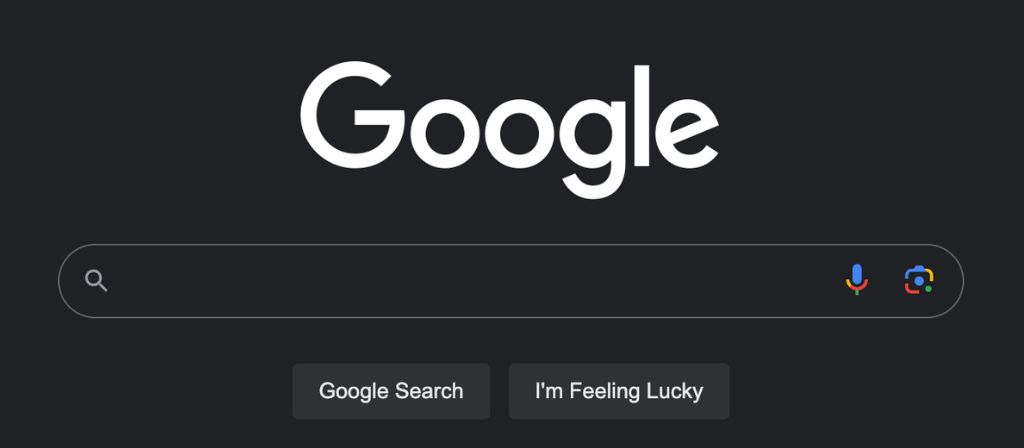
The no-follow link is one of the most important elements of a website, especially when it comes to link building and search engine optimization.
It informs search engines what links to avoid, especially when ranking your website on its result pages.
As an SEO expert with over a decade of experience building successful websites, I will explain in detail what a no-follow link is and why it is important to your website.
Table Of Contents
- Quick Summary
- What Is A No-Follow Link?
- How to Locate No-Follow Links on a Webpage?
- The Impact of No-Follow Links on SEO Performance
- Difference Between No-Follow and No-Index
- Difference Between No-Follow and Do-Follow Links
- No-Follow Links as Hints, Not Directives?
- What if I Don’t Use No-Follow for Necessary Links?
- Detecting No-Follow Link Issues on Your Website
- FAQs
- Implement No-Follow Links In Your Website’s Backlink Profile
Quick Summary
A no-follow link is an HTML code that hints for search engines like Google to ignore certain links for indexing and optimization.
The difference between a no-follow link and a follow link is in the structure of their HTML codes, as they are very difficult to differentiate on the surface.
Nofollow links may not be as useful as follow links, but they are still crucial to your website regarding traffic and authority, which is why they should be in its backlink profile.
What Is A No-Follow Link?
A no-follow link is a hyperlink with the rel=”nofollow” tag telling search engines like Google to ignore certain outbound links.

Essentially, the no-follow link sends a message to Google to let it know that such links are not part of your website’s backlinks and should not be considered when ranking your website on its search result pages. Also, no-follow links prevent comment spam and protect blog comments, trackbacks, forum posts, and referrer lists.
No-follow links become more obvious when you look at the HTML code because it may be difficult to tell which links are no-follow and follow links on the surface.
A no-follow link looks like this:
<a href="https://bluebaby.com" rel="nofollow">blue text</a>while a follow link looks like this:
<a href="https://bluebaby.com">blue text</a>How to Locate No-Follow Links on a Webpage?
You can find no-follow links on a webpage by conducting a manual process of accessing the page source. You can do it with the right-click and choosing the “View page source” option.

After you have done that, follow these steps:
Press “Control (ctrl) F”
Type no-follow in the search box that appears
Once done, a list of no-follow links will appear on the webpage
You can also find no-follow links by using extensions such as the SEO Quake Extension. It will provide you with a list of external links, including no-follow links.
The Impact of No-Follow Links on SEO Performance
A no-follow link is important for SEO for several reasons since these links can make or break your website’s rankings. While Google claims it doesn’t directly impact rankings, several parts of your website are connected to no-follow links, and they can significantly impact its performance.

These are some of the ways no-follow links impact your SEO performance.
1. They Expand Your Backlink Profile
As much as you may want your website only to be linked to follow links, some no-follow links are still needed. This expands your backlink profile and is what you should expect if you run a proper website.
Another thing you should note is that links gotten from social media, press releases, and directories are all no-follow links, which means that having no-follow links in your backlink profile is, without a doubt, inevitable.
2. They Attract Traffic To Your Site
No-follow links drive traffic to your site, giving it more attention and access to a larger audience.

Platforms like Quora are known to have valuable no-follow links, especially when your website is provided as a reference in an answer provided to a question.
This can bring traffic to your site and even indirectly bring follow links once another site finds useful information on yours.
3. They Build Brand Awareness
No-follow links can build brand awareness through the traffic they generate. Once people visit your site, they become aware of what you do and the services you offer.
This way, your business will experience growth, and you will be the first point of call when these individuals require services or products offered by your website.
4. They Improve Domain Authority
No-follow links can help improve your website’s domain authority through the traffic they bring, which gives your site good credibility, especially among its competitors.
Difference Between No-Follow and No-Index
There is a difference between no-follow and no-index, as they are used for entirely different purposes. No-index informs search engines to ignore certain pages within your website.

This means Google, for instance, won’t be able to crawl and index these pages, and they won’t also appear in the search result pages.
Usually, for the no-index directive to take effect, such pages must be free from robots.txt files because they can cause the pages to still appear in search results, especially when they are linked from other websites.
A no-follow link, on the other hand, is an HTML code that tells search engines to ignore certain links on your website. The search engine bots won’t crawl these links and will not directly impact your website’s ranking or search engine optimization.
Difference Between No-Follow and Do-Follow Links
The difference between no-follow and do-follow links is that do-follow links are the important links that make up your backlink profile and contribute to your site’s ranking and search engine optimization.

No-follow links are quite the opposite, as they do not directly impact SEO or page rankings but still make up a small percentage of your backlink profile.
On the surface, it is difficult to differentiate between the two. The only way you can tell the difference is when you look at their HTML tags.
No-Follow Links as Hints, Not Directives?
Google treats no-follow links as hints rather than directives because it collects data on each link for proper evaluation and to identify link schemes without compromising link attribute signals.

They also stated that this would not affect search results and advised website owners not to worry about changing their website’s no-follow links.
However, it is believed that the change made by Google does not improve a website’s SEO or rank performance, to which Google responded by confirming that the no-follow attribute will still not be used for ranking purposes even if they are now considered hints.
What if I Don’t Use No-Follow for Necessary Links?
If you do not add no-follow to links that need it or use paid links, Google might penalize you, which might cause your website to have a very low ranking.

In some extreme cases, Google might proceed to remove your website completely from its search results.
The only way to overcome this would be to correct the issues on your website and submit it back for crawling and indexing. The Google Search Console is a helpful tool that can let you know if you have a website penalty from Google.
If you refuse to add no-follow to an irrelevant link, there are no penalties for that, although doing so might make it difficult for search engines to ascertain your website’s credibility and authority.
Detecting No-Follow Link Issues on Your Website
If you have certain no-follow links that are causing problems for your website and limiting its SEO performance, you must perform an audit by doing the following:
Look for Followed Backlinks With the Same Anchors: Sometimes, backlinks with the same anchors could be a sign of backlink manipulation. If this is the case, ensure that these links are no-followed.
Look for Followed Sponsored Backlinks: Closely look out for followed sponsored backlinks on your website and ensure they are no-followed.
Look for Suspicious Words and Phrases: If you see any suspicious words or phrases that typically shouldn’t be on your website, either no-follow them or remove them entirely.
Look for Followed Sponsored Links: If you accept sponsored posts on your website, check them again and ensure that their outgoing links are no-follow.
Look for No-follow Internal Links: Internal links should not be no-follow unless they are linked to pages on your website that you don’t want to be indexed. If they are not, check your internal links and remove the no-follow tag for anyone you come across.
No-follow links are classified as citations, and they go a long way towards building URL trust with search engines. Many websites offer links like this, but a trusted website will take your website far.
– Gary Vela, Digital Marketing Expert and Chief Executive Officer at Web Daytona
FAQs
Why Do People Use No-Follow Links?
People use no-follow links to notify search engines not to consider certain links for ranking on their search result pages. Top search engines such as Google see them as hints and take note of them accordingly.

Does No-Follow Links Help In SEO?
No, they do not directly help with SEO, but they offer other indirect benefits, such as bringing in traffic and building brand awareness and exposure.
Do No-Follow Links Count As Backlinks?
Yes, no-follow links count as backlinks. A normal backlink profile should have an excellent combination of follow and no-follow backlinks, irrespective of how authoritative the website is.
Can My Website Rank For SEO Without Backlinks?
Yes, your website can rank for SEO without backlinks, but not as much as other websites with backlinks. This is because backlinks are an important part of search engine optimization.
Watch this video to learn more about different types of backlinks that will help you to rank on Google.
Implement No-Follow Links In Your Website’s Backlink Profile
No-follow links may not be as important as follow links, but they still play a vital role in your website’s backlink profile. You can also buy backlinks as it can save considerable time and potentially be more cost-effective than building them from scratch.
While making sure that you get follow links, do ensure that you do the same for no-follow links as well because they will bring your website more traffic and boost its credibility and authority even further.
No-follow links will also foster better brand awareness since they are linked to social media platforms, resulting in business growth once people visit your website to explore the services and products you offer.
